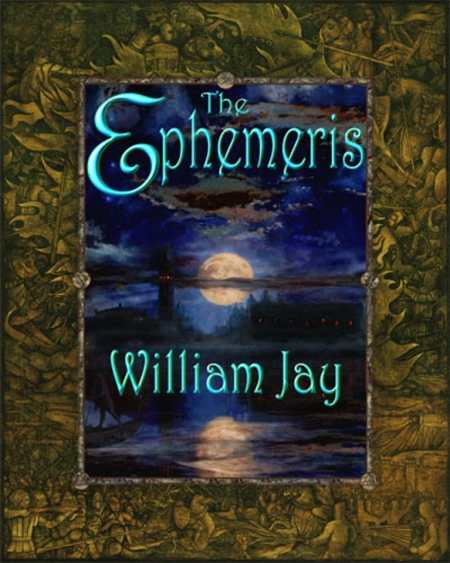The Ephemeris
The Ephemeris by William Jay is a unique and artistic work with aspects modeled on the styles of the Renaissance and the classical Greek era.
With a plot line that seems to be modeled on Homer’s Odyssey, it opens as a merchant sailor, Justin, begins to tell the story of his voyage to return home. His friends from Cornwall, Edgar and Tom, ultimately join him and together they brave wars, storms, and other perils in a journey of epic proportions.
The story begins with “The Incantation of the Muse,” just as a classical Greek epic would. Jay also writes, “O muse, I now invoke thee for to tell the tale he told me.” Such a reference is a modeled on classical epic style. The high and romantic language also bears the characteristics of Renaissance romantic tales. For instance, Jay writes, “Said Tom, ‘A debate for conclave this compels. The question: whether pure or purulent the ghost to heaven goes.’”
The story has an eery, larger-than-life quality to it, which reminds readers of Renaissance romantic literature, as the narrator demonstrates in one particular scene: “Nor did I tell them what transpired when from Solway back to Venice with my Redwyn I returned. How from a gondola that night we saw a light within his villa burned. The plague once more was in that town … I swear I heard upon the water faint notes of a violin.”
Another mysterious aspect enhances the adventurous quality of the book and is integral to its conception: an accompanying CD featuring a dramatically perfomed audio narrative also contains music both beautiful and tragic in tone, adding to the romantic aura.
In one of the final scenes, Edgar becomes convinced that he and his friends, having experienced a boat wreck, have been killed and are simply ghosts. He cries out, “Oh ghastly force upon my back! Cold and clammy are thy hands, alack!” His friends, however, correct him and the scene’s humor provides some much-needed comic relief.
The style of The Ephemeris is fairly accessible. The rhythmic meter and rhyming words make the dialogue flow. For instance, at one point Angelo says, “I’m grateful for that sentiment, and pray for some postponement ere I die, if but to hear such kindly thoughts delivered on a lie.” However, the sheer amount and occasional intensity of the high language is a bit overwhelming and could easily deter an unsuspecting reader.
While the book’s elaborate and colorful formatting enhances the romantic aura of the tale, the design also gives the initial impression that this is a title meant for children; the intense language and sheer length, however, make the book inaccessible for young readers.
The Ephemeris is not a book that will appeal to everyone’s tastes, but has masterful artistic and literary qualities and will provide rich entertainment for readers who understand the references to classical and romantic literary eras.
Reviewed by
Emily Adams
Disclosure: This article is not an endorsement, but a review. The publisher of this book provided free copies of the book and paid a small fee to have their book reviewed by a professional reviewer. Foreword Reviews and Clarion Reviews make no guarantee that the publisher will receive a positive review. Foreword Magazine, Inc. is disclosing this in accordance with the Federal Trade Commission’s 16 CFR, Part 255.

